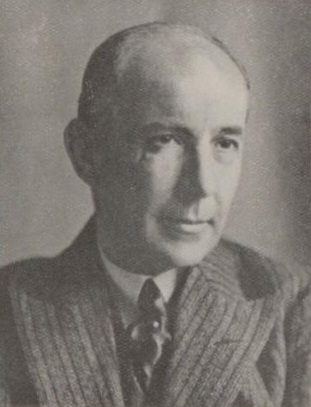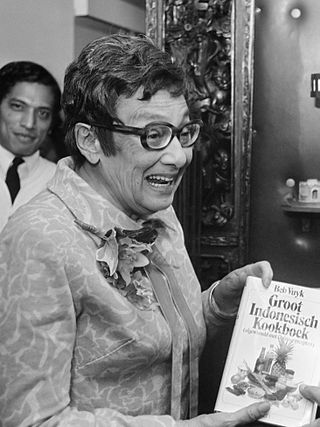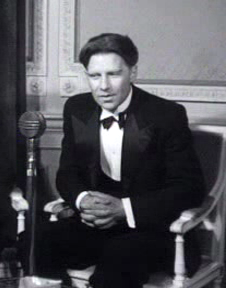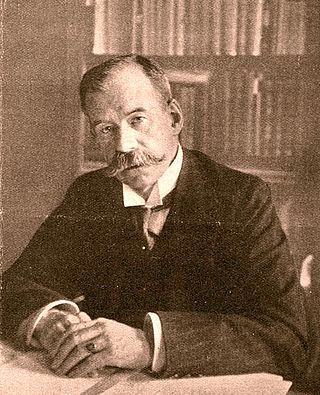
Willem Frederik Hermans was a Dutch author of poetry, novels, short stories, plays, as well as book-length studies, essays, and literary criticism. His most famous works are The House of Refuge, The Darkroom of Damocles, and Beyond Sleep.

Louis Marie-Anne Couperus was a Dutch novelist and poet. His oeuvre contains a wide variety of genres: lyric poetry, psychological and historical novels, novellas, short stories, fairy tales, feuilletons and sketches. Couperus is considered to be one of the foremost figures in Dutch literature. In 1923, he was awarded the Tollensprijs.

Hélène "Hella" Serafia Haasse was a Dutch writer, often referred to as the "Grande Dame" of Dutch literature, and whose novel Oeroeg (1948) was a staple for generations of Dutch schoolchildren. Her internationally acclaimed magnum opus is Heren van de Thee, translated to The Tea Lords. In 1988 Haasse was chosen to interview the Dutch Queen for her 50th birthday after which celebrated Dutch author Adriaan van Dis called Haasse "the Queen among authors".

Geldolph Adriaan "Dolf" Kessler was a Dutch footballer and industrialist. Kessler – along with brother Boeli and cousins Tonny and Dé – played club football for amateur side HVV Den Haag. Kessler also won three caps for the Dutch national side between 1905 and 1906.

Guus Kuijer is a Dutch author. He wrote books for children and adults, and is best known for the Madelief series of children's books. For his career contribution to "children's and young adult literature in the broadest sense" he won the Astrid Lindgren Memorial Award from the Swedish Arts Council in 2012, the biggest prize in children's literature. As a children's writer he was one of five finalists for the biennial, international Hans Christian Andersen Award in 2008.
The Gouden Ganzenveer is a Dutch cultural award initiated in 1955, given annually to a person or organization of great significance to the written and printed word. Recipients are selected by an academy of people from the cultural, political, scientific, and corporate world. Members meet once a year; the winner is announced each year in January and honored in April. From 1995 to 1998 the award was granted by the Koninklijke Nederlandse Uitgeversbond, the Royal Dutch Organization of Publishers; since 2000, it is granted by a separate organization.

Robert Nieuwenhuys was a Dutch writer of Indo descent. The son of a 'Totok' Dutchman and an Indo-European mother, he and his younger brother Roelof, grew up in Batavia, where his father was the managing director of the renowned Hotel des Indes.

Elizabeth (Beb) Vuyk was a Dutch writer of Indo (Eurasian) descent. Her Indo father was born in the Dutch East Indies and had a mother from Madura, but was ‘repatriated’ to the Netherlands on a very young age. She married into a typically Calvinist Dutch family and lived in the port city of Rotterdam. Vuyk grew up in the Netherlands and went to her father’s land of birth in 1929 at the age of 24. 3 years later she married Fernand de Willigen, a native born Indo that worked in the oil and tea plantations throughout the Indies. They had 2 sons, both born in the Dutch East Indies.

Marion Bloem is a Dutch writer and film maker of Indo descent, best known as author of the literary acclaimed book Geen gewoon Indisch meisje and director of the 2008 feature film Ver van familie.
The Golden Book-Owl is a Belgian prize for original Dutch language literature. Originally it was named Golden Owl. It has been awarded annually since 1995.

Dutch Indies literature or Dutch East Indies literature is the Dutch language literature of colonial and post-colonial Indonesia from the Dutch Golden Age to the present day. It includes Dutch, Indo-European and Indonesian authors. Its subject matter thematically revolves around the VOC and Dutch East Indies eras, but also includes the postcolonial discourse.

A. den Doolaard is the pseudonym of the Dutch writer and journalist Cornelis Johannes George (Bob) Spoelstra Jr.

Conrad Theodor "Coen" van Deventer was a Dutch lawyer, an author about the Dutch East Indies and a member of parliament of the Netherlands. He became known as the spokesman of the Dutch Ethical Policy Movement. He lived at Surinamestraat 20, The Hague (1903–1915), former residence of John Ricus Couperus, his son writer Louis Couperus and the rest of his family (1884–1902).

Pieter Adriaan Jacobus "Piet" Moojen was a Netherlands-Indies architect, painter and writer. He studied architecture and painting in Antwerp. He lived and worked in the Dutch East Indies from 1903 to 1929. He was one of the first architects to implement Modernism in the Dutch East Indies. Moojen became widely known for his work on the Dutch entry at the Paris Colonial Exposition in 1931. He was active as an architect between 1909 and 1931.

Marie "Rie" Cramer was a Dutch writer and prolific illustrator of children's literature whose style is considered iconic for the interwar period. For many years, she was one of the two main illustrators for a leading Dutch youth magazine, Zonneschijn (Sunshine). She also wrote plays under the pseudonym Marc Holman. Some of her work was banned during World War II because it attacked National Socialism, and she wrote for a leading underground newspaper during the war.

Margaretha Maria Antonetta 'Margriet' de Moor is a Dutch pianist and writer of novels and essays. She won the AKO Literatuurprijs for her novel Eerst grijs dan wit dan blauw (1991).
Gouden Ezelsoor was an award for the best-selling literary debut in the Netherlands. It was first awarded in 1979 and last awarded in 2008.

The coat of arms of the municipality and town of Weert in Limburg in the Netherlands was assigned to the municipality on 16 November 1977 by royal decree by the High Council of Nobility. It replaced the first coat of arms from 1918.

Annie Salomons (1885–1980) was a Dutch writer, poet and translator.

Anne-Lot Hoek is a Dutch historian, independent researcher and author. She writes historical non-fiction, articles and academic publications.

















